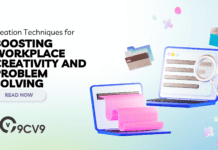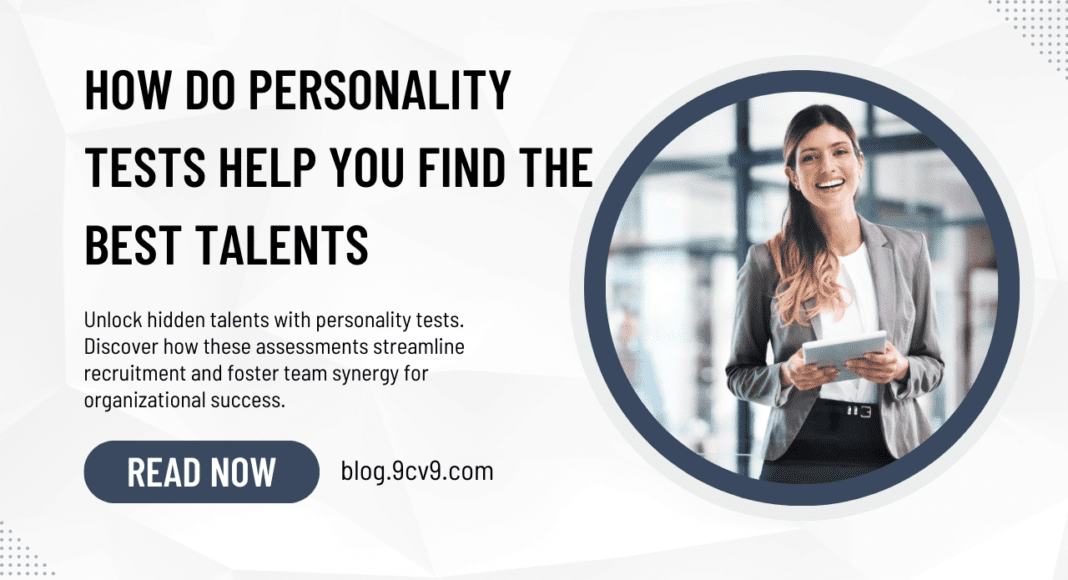Key Takeaways
- Enhance Hiring Precision: Personality tests offer a scientific approach to identifying candidates whose traits align with job requirements and organizational culture, streamlining the recruitment process for better talent selection.
- Foster Team Synergy: By assembling teams with diverse personalities and complementary strengths, personality tests facilitate collaboration, communication, and innovation, driving organizational performance to new heights.
- Mitigate Bias, Maximize Potential: Implementing validated personality assessments helps mitigate unconscious biases in hiring decisions, ensuring fair and equitable treatment of candidates while unlocking the full potential of your workforce.
In the ever-evolving landscape of talent acquisition, businesses face a perennial challenge: how to unearth the best-suited individuals whose unique blend of skills, traits, and cultural fit can propel their organizations to new heights.
It’s a quest as old as commerce itself, but in today’s hypercompetitive market, the stakes have never been higher, nor the methods more sophisticated.
Enter personality tests – the unsung heroes of modern recruitment strategies.
These seemingly innocuous assessments wield an unparalleled ability to peer into the depths of human behavior, revealing insights that traditional resumes and interviews often fail to capture.
But how exactly do personality tests hold the key to unlocking the potential of your workforce? And what makes them indispensable tools in the quest for identifying top talent?
In this comprehensive guide, we embark on a journey to demystify the role of personality tests in the talent acquisition process.
From understanding the science behind these assessments to exploring their practical applications in real-world scenarios, we leave no stone unturned in our quest to illuminate the transformative potential of personality testing.
But before we delve into the intricacies of personality assessments, it’s essential to grasp the fundamental concept underpinning their efficacy: the notion that personality traits are not just idiosyncratic quirks but rather powerful predictors of behavior, performance, and cultural fit within organizational settings.
Researchers have long recognized the existence of distinct personality dimensions that shape how individuals perceive the world, interact with others, and approach tasks.
From the seminal work of Carl Jung to the contemporary frameworks of the Big Five Personality Traits and the Myers-Briggs Type Indicator (MBTI), the study of personality has evolved into a rich tapestry of theories and models, each offering its own unique lens through which to understand human nature.
At its core, personality testing seeks to assess these fundamental dimensions of personality, providing employers with invaluable insights into candidates’ innate tendencies, preferences, and behavioral patterns.
By harnessing the predictive power of these assessments, organizations can make more informed decisions throughout the recruitment process, ultimately leading to better hires and enhanced organizational performance.
But the benefits of personality testing extend far beyond mere selection criteria.
In an era defined by rapid technological advancements and shifting market dynamics, companies must navigate an increasingly complex landscape fraught with uncertainty and ambiguity.
In such environments, the ability to assemble teams of individuals whose strengths complement one another and whose personalities align with the organization’s values becomes paramount.
Personality tests serve as invaluable tools for achieving this objective, offering a systematic means of assembling teams that are not only diverse in skill set but also harmonious in temperament.
By fostering a culture of collaboration and mutual respect, organizations can leverage the collective strengths of their workforce to tackle challenges with agility and innovation.
Moreover, personality testing holds the potential to revolutionize the way companies approach employee development and retention.
By gaining a deeper understanding of employees’ individual strengths and motivations, organizations can tailor training programs, assign roles, and provide feedback in a manner that maximizes engagement and job satisfaction.
But for all their potential benefits, personality tests are not without their challenges and controversies.
Critics argue that such assessments may perpetuate stereotypes, reinforce bias, or oversimplify the complexities of human behavior.
Moreover, concerns have been raised regarding the ethical implications of using personality testing as a basis for employment decisions, particularly in light of the growing emphasis on diversity, equity, and inclusion.
In the pages that follow, we’ll explore these issues in greater detail, offering practical strategies for mitigating bias, ensuring fairness, and maximizing the validity and reliability of personality assessments.
From debunking common myths to providing actionable tips for incorporating personality testing into your recruitment toolkit, this guide is your roadmap to harnessing the full potential of personality tests in the quest for top talent.
So, whether you’re a seasoned HR professional looking to revitalize your recruitment strategy or a business leader seeking to gain a competitive edge in today’s talent market, join us as we embark on a journey to unlock the mysteries of personality testing and discover the transformative power it holds for your organization.
Before we venture further into this article, we like to share who we are and what we do.
About 9cv9
9cv9 is a business tech startup based in Singapore and Asia with a strong presence all over the world.
With over eight years of startup and business experience, and being highly involved in connecting with thousands of companies and startups, the 9cv9 team has listed some important learning points in this overview of How Do Personality Tests Help You Find the Best Talents.
If your company needs recruitment and headhunting services to hire top employees, you can use 9cv9 headhunting and recruitment services to hire top talents and candidates. Find out more here, or send over an email to [email protected].
Or just post 1 free job posting here at 9cv9 Hiring Portal in under 10 minutes.
How Do Personality Tests Help You Find the Best Talents
- Understanding Personality Tests
- Leveraging Personality Tests in Talent Acquisition
- Benefits of Personality Testing for Employers
- Challenges and Considerations
1. Understanding Personality Tests
In the realm of talent acquisition, understanding personality tests is akin to unlocking a treasure trove of invaluable insights into candidates’ behavioral tendencies, preferences, and compatibility with organizational culture.
But what exactly are personality tests, and how do they work?
Let’s delve into the intricacies of these assessments to uncover their inner workings and shed light on their relevance in today’s recruitment landscape.
What Are Personality Tests?
- Definition: Personality tests are standardized assessments designed to evaluate various aspects of an individual’s personality, such as traits, preferences, and behavioral tendencies.
- Purpose: These tests aim to provide employers with insights into candidates’ suitability for specific roles, their compatibility with team dynamics, and their alignment with organizational values and culture.
- Types: Personality tests come in various forms, ranging from self-reported questionnaires to objective assessments administered by trained professionals.

Types of Personality Tests
- Myers-Briggs Type Indicator (MBTI):
- Based on Carl Jung’s theory of psychological types, MBTI categorizes individuals into one of 16 personality types based on their preferences in four dichotomous dimensions: extraversion/introversion, sensing/intuition, thinking/feeling, and judging/perceiving.
- Example: A marketing team might benefit from a mix of extroverted individuals who excel at networking and introverted thinkers who thrive in analytical tasks.
- Big Five Personality Traits:
- The Big Five model assesses personality across five broad dimensions: openness to experience, conscientiousness, extraversion, agreeableness, and neuroticism (OCEAN).
- Example: A sales role might require high levels of extraversion and agreeableness for effective customer interaction and relationship-building.
- DISC Assessment:
- Based on the DISC model, this assessment categorizes individuals into four personality types: Dominance, Influence, Steadiness, and Conscientiousness, each representing distinct behavioral styles.
- Example: A leadership position might require a candidate with a dominant personality type to drive strategic initiatives and make tough decisions.
- StrengthsFinder:
- This assessment identifies individuals’ top strengths from a list of 34 themes, helping employers leverage employees’ unique talents for maximum impact.
- Example: A project manager might excel in executing tasks efficiently due to their strengths in organization and strategic thinking.
Importance of Using Scientifically Validated Tests
- Validity: Scientifically validated personality tests demonstrate predictive validity, meaning they reliably predict relevant outcomes, such as job performance or team dynamics.
- Reliability: Reliable tests yield consistent results over time and across different administrations, ensuring that scores accurately reflect individuals’ true personality traits.
- Ethical Considerations: Employers must ensure that personality tests comply with ethical guidelines, such as providing informed consent, maintaining confidentiality, and avoiding discrimination based on protected characteristics.
Real-World Examples
- Google’s Project Oxygen: Google’s internal research project identified key traits of effective managers, such as being a good coach and empowering team members, using personality assessments to inform leadership development programs.
- Zappos’ Culture Fit Assessment: Zappos incorporates a culture fit assessment into its hiring process to ensure alignment with the company’s core values and customer-centric culture, using personality tests to gauge candidates’ cultural fit.

By understanding the nuances of personality tests and their various applications, employers can harness the predictive power of these assessments to make informed hiring decisions, optimize team dynamics, and foster a culture of engagement and collaboration within their organizations.
2. Leveraging Personality Tests in Talent Acquisition
In today’s competitive job market, talent acquisition has become more than just matching skills to job requirements.
It’s about finding the right cultural fit, predicting performance, and assembling teams that can collaborate effectively toward organizational goals.
Personality tests offer a strategic advantage in this endeavor, providing valuable insights into candidates’ behavioral tendencies and potential for success.
Let’s explore how personality tests can be leveraged in talent acquisition to drive better hiring decisions and foster organizational excellence.

Streamlining the Recruitment Process
- Initial Candidate Screening:
- Personality tests serve as efficient screening tools to sift through a large pool of candidates quickly.
- By identifying candidates whose personality traits align with the job requirements and organizational culture, recruiters can focus their efforts on the most promising candidates.
- Example: A tech company may use a personality test to screen candidates for a customer support role, prioritizing those with high levels of empathy and patience.
- Identifying Potential Cultural Fits:
- Cultural fit is a critical factor in employee retention and organizational success.
- Personality tests can help assess candidates’ alignment with the company’s values, mission, and work culture.
- Example: A startup known for its collaborative work environment may use a personality test to ensure that candidates value teamwork and adaptability.
Enhancing Candidate Evaluation
- Assessing Compatibility with Job Roles and Responsibilities:
- Different roles require different personality traits for optimal performance.
- Personality tests provide insights into candidates’ strengths, weaknesses, and suitability for specific job functions.
- Example: A sales position may require candidates with high levels of extraversion and assertiveness, traits that can be assessed through personality tests.
- Predicting Performance and Potential for Growth:
- Personality tests offer predictive validity in forecasting candidates’ job performance and potential for growth.
- By identifying individuals who possess traits associated with success in a particular role, recruiters can make more informed hiring decisions.
- Example: A leadership role may require candidates with strong communication skills and emotional intelligence, which can be assessed using personality tests.
Facilitating Team Dynamics
- Creating Diverse and Complementary Teams:
- Effective teams are comprised of individuals with diverse backgrounds, skills, and personalities.
- Personality tests help recruiters assemble teams that balance different personality traits and work styles for optimal collaboration.
- Example: A project team may benefit from a mix of personalities, including detail-oriented planners and creative problem-solvers, to ensure comprehensive project execution.
- Improving Collaboration and Communication:
- Understanding team members’ personalities can enhance communication and reduce conflicts.
- Personality tests provide insights into individuals’ communication preferences, conflict resolution styles, and leadership tendencies.
- Example: A team undergoing a personality assessment workshop may gain a better understanding of each other’s communication styles, leading to more effective collaboration and synergy.
By leveraging personality tests in talent acquisition, organizations can streamline their recruitment processes, enhance candidate evaluation, and foster cohesive and high-performing teams.
These assessments serve as invaluable tools for making data-driven hiring decisions that align with organizational objectives and promote long-term success.
3. Benefits of Personality Testing for Employers
Personality testing has emerged as a strategic tool for employers seeking to optimize their talent acquisition and management processes.
Beyond mere assessment, these tests offer a multitude of benefits that can positively impact organizational performance, employee satisfaction, and overall success.
Let’s explore some of the key advantages that personality testing brings to employers:
Reduced Turnover Rates
- Matching Candidates with Organizational Values and Culture:
- Personality tests help identify candidates who align with the company’s values, mission, and culture.
- Employees who resonate with the organizational culture are more likely to stay engaged and committed, reducing turnover rates.
- Example: A company known for its innovative and collaborative culture may use personality tests to screen candidates who value autonomy and teamwork, leading to higher retention rates among employees.
- Decreasing Misfits and Subsequent Turnover:
- Personality testing helps avoid misalignment between employees’ personalities and job roles, which can lead to dissatisfaction and turnover.
- By selecting candidates whose personalities are well-suited to their positions, employers can reduce turnover rates and minimize recruitment costs.
- Example: A retail company may use personality tests to ensure that sales associates possess traits such as friendliness and adaptability, reducing turnover among frontline staff.

Improved Job Satisfaction and Engagement
- Aligning Employees with Roles that Suit Their Personality Traits:
- Personality tests provide insights into individuals’ strengths, preferences, and work styles.
- By assigning employees to roles that capitalize on their innate talents and personality traits, employers can increase job satisfaction and engagement.
- Example: An analytical thinker may find fulfillment in a role that requires problem-solving and data analysis, leading to greater job satisfaction and productivity.
- Fostering a Sense of Purpose and Fulfillment:
- Employees who feel valued and recognized for their contributions are more likely to be satisfied and engaged in their work.
- Personality testing helps identify employees’ unique strengths and contributions, fostering a sense of purpose and fulfillment.
- Example: An employee who excels in leadership skills may be assigned leadership roles and responsibilities, leading to greater job satisfaction and motivation.
Enhanced Organizational Performance
- Leveraging Employees’ Strengths for Greater Productivity:
- Personality testing identifies individuals’ strengths and areas for development.
- By leveraging employees’ strengths and providing opportunities for growth, employers can enhance productivity and performance.
- Example: A software development team may assign tasks based on team members’ strengths, such as problem-solving or attention to detail, resulting in more efficient project execution.
- Building Resilient and Adaptable Teams:
- Personality tests help assemble teams with diverse skill sets and complementary personalities.
- Diverse teams are better equipped to tackle challenges, adapt to change, and innovate.
- Example: A project team comprising individuals with different personality traits, such as creativity, organization, and leadership, can navigate complex projects more effectively and achieve better outcomes.
Real-World Examples
- Deloitte’s Leadership Assessment: Deloitte uses personality assessments to identify leadership potential among employees and tailor development programs accordingly, resulting in stronger leadership pipelines and higher retention rates.
- Southwest Airlines’ Hiring Practices: Southwest Airlines incorporates personality testing into its hiring process to ensure that candidates align with the company’s customer-centric culture and core values, leading to lower turnover rates and higher employee satisfaction.
By leveraging personality testing, employers can not only reduce turnover rates and improve job satisfaction but also enhance organizational performance and build resilient teams capable of driving sustained success.
These assessments serve as invaluable tools for aligning talent with business objectives and fostering a culture of engagement, innovation, and excellence.
4. Challenges and Considerations
While personality testing offers numerous benefits in talent acquisition, it’s essential for employers to be mindful of potential challenges and considerations associated with these assessments.
From addressing biases to ensuring ethical use, navigating the complexities of personality testing requires careful consideration and strategic planning. Let’s explore some of the key challenges and considerations:
Potential Limitations and Biases
- Stereotyping and Bias:
- Personality tests may inadvertently perpetuate stereotypes or biases based on gender, race, or other protected characteristics.
- Employers must ensure that assessments are fair, unbiased, and free from discriminatory language or assumptions.
- Example: A personality test that assumes extroversion as a prerequisite for sales roles may unfairly disadvantage introverted candidates, leading to biased hiring decisions.
- Oversimplification of Human Behavior:
- Personality tests provide a snapshot of individuals’ traits and preferences but may oversimplify the complexities of human behavior.
- Employers should supplement personality assessments with other evaluation methods to gain a more comprehensive understanding of candidates’ capabilities and potential.
- Example: Relying solely on personality tests to assess candidates’ suitability for leadership roles may overlook critical factors such as experience and performance history.
Ethical and Fair Use of Personality Assessments
- Informed Consent:
- Employers must obtain informed consent from candidates before administering personality tests, explaining the purpose of the assessment and how the results will be used.
- Candidates should have the option to decline participation in personality testing without facing adverse consequences.
- Example: A job applicant should receive clear information about the personality test’s purpose, how the results will be used in the hiring process, and their right to opt out if they choose.
- Confidentiality and Data Privacy:
- Employers must protect the confidentiality of candidates’ personal information and ensure compliance with data privacy regulations.
- Personality test results should be securely stored and accessible only to authorized individuals involved in the hiring process.
- Example: Employers should use secure platforms to administer personality tests and implement data encryption protocols to safeguard candidates’ sensitive information.
Strategies for Overcoming Challenges
- Validation and Reliability:
- Employers should select personality tests that have undergone rigorous validation processes and demonstrate reliability in predicting job performance.
- Validated assessments have been tested for their accuracy and effectiveness in various contexts, reducing the risk of biased or inaccurate results.
- Example: A company may choose to use personality tests that have been validated for specific job roles or industries to ensure the assessments’ relevance and predictive power.
- Diversity and Inclusion Training:
- Employers should provide training to recruiters and hiring managers on diversity, equity, and inclusion (DEI) best practices.
- Training programs can help mitigate unconscious biases and ensure that personality testing is used in a fair and equitable manner.
- Example: Recruiters may undergo DEI training to recognize and address biases that could influence their interpretation of personality test results and hiring decisions.
By proactively addressing challenges and considerations associated with personality testing, employers can maximize the benefits of these assessments while mitigating risks and ensuring fairness and equity in the talent acquisition process.
With careful planning and strategic implementation, personality testing can be a valuable tool for identifying top talent and driving organizational success.
Conclusion
In the fast-paced and competitive landscape of talent acquisition, the quest to find the best-suited candidates for organizational success is a perpetual challenge.
However, with the advent of personality testing, employers have gained a powerful tool to navigate the complexities of the hiring process with greater precision and insight. Through this comprehensive exploration of how personality tests help identify the best talents, it’s evident that these assessments offer multifaceted benefits that extend far beyond mere evaluation.
From streamlining the recruitment process to enhancing candidate evaluation and facilitating team dynamics, personality tests serve as invaluable instruments for optimizing talent acquisition strategies.
By leveraging these assessments, employers can make more informed hiring decisions, align candidates with organizational values and culture, and assemble teams that are not only diverse but also harmonious in temperament and work style.
Moreover, the benefits of personality testing extend beyond the hiring stage, permeating throughout the employee lifecycle to foster job satisfaction, engagement, and organizational performance.
By matching employees with roles that suit their personality traits, employers can enhance job satisfaction, productivity, and retention rates, ultimately driving greater success and competitiveness in the marketplace.
However, it’s essential for employers to navigate the challenges and considerations associated with personality testing, such as addressing biases, ensuring ethical use, and validating the reliability of assessments.
By adopting strategies to overcome these challenges, organizations can harness the full potential of personality testing while upholding fairness, equity, and integrity in the talent acquisition process.
As we conclude this exploration of personality testing and its role in finding the best talents, it’s clear that these assessments represent a transformative force in modern recruitment practices.
By embracing innovation, leveraging data-driven insights, and prioritizing inclusivity and fairness, employers can unlock the power of personality testing to build high-performing teams, foster a culture of excellence, and drive sustained success in today’s dynamic business environment.
In essence, personality tests are not merely tools for assessment but gateways to unlocking the full potential of talent within organizations.
By embracing the science of personality assessment and integrating it into their talent acquisition strategies, employers can embark on a journey of discovery, uncovering hidden talents, nurturing individual strengths, and cultivating a workforce that thrives on diversity, collaboration, and innovation.
So, as you embark on your own talent acquisition journey, remember the transformative potential of personality testing.
Embrace the insights it offers, empower your teams, and unleash the limitless potential of human talent to propel your organization towards greater heights of success and achievement.
With personality testing as your compass, the path to finding the best talents has never been clearer.
If your company needs HR, hiring, or corporate services, you can use 9cv9 hiring and recruitment services. Book a consultation slot here, or send over an email to [email protected].
If you find this article useful, why not share it with your hiring manager and C-level suite friends and also leave a nice comment below?
We, at the 9cv9 Research Team, strive to bring the latest and most meaningful data, guides, and statistics to your doorstep.
To get access to top-quality guides, click over to 9cv9 Blog.
People Also Ask
Can personality tests be used for hiring?
Yes, personality tests can be used for hiring purposes. These assessments provide valuable insights into candidates’ behavioral tendencies, preferences, and compatibility with job roles and organizational culture, aiding in making more informed hiring decisions.
What is the best personality test for employment?
The best personality test for employment often depends on specific organizational needs and preferences. However, some widely used assessments include the Myers-Briggs Type Indicator (MBTI), the Big Five Personality Traits, and the DISC Assessment, each offering unique insights into candidates’ personalities and suitability for job roles.
What is the Big Five personality test for hiring?
The Big Five personality test, also known as the Five-Factor Model, assesses individuals across five broad dimensions: openness to experience, conscientiousness, extraversion, agreeableness, and neuroticism. It is commonly used in hiring to evaluate candidates’ personality traits and predict job performance.































![Writing A Good CV [6 Tips To Improve Your CV] 6 Tips To Improve Your CV](https://blog.9cv9.com/wp-content/uploads/2020/06/2020-06-02-2-100x70.png)


